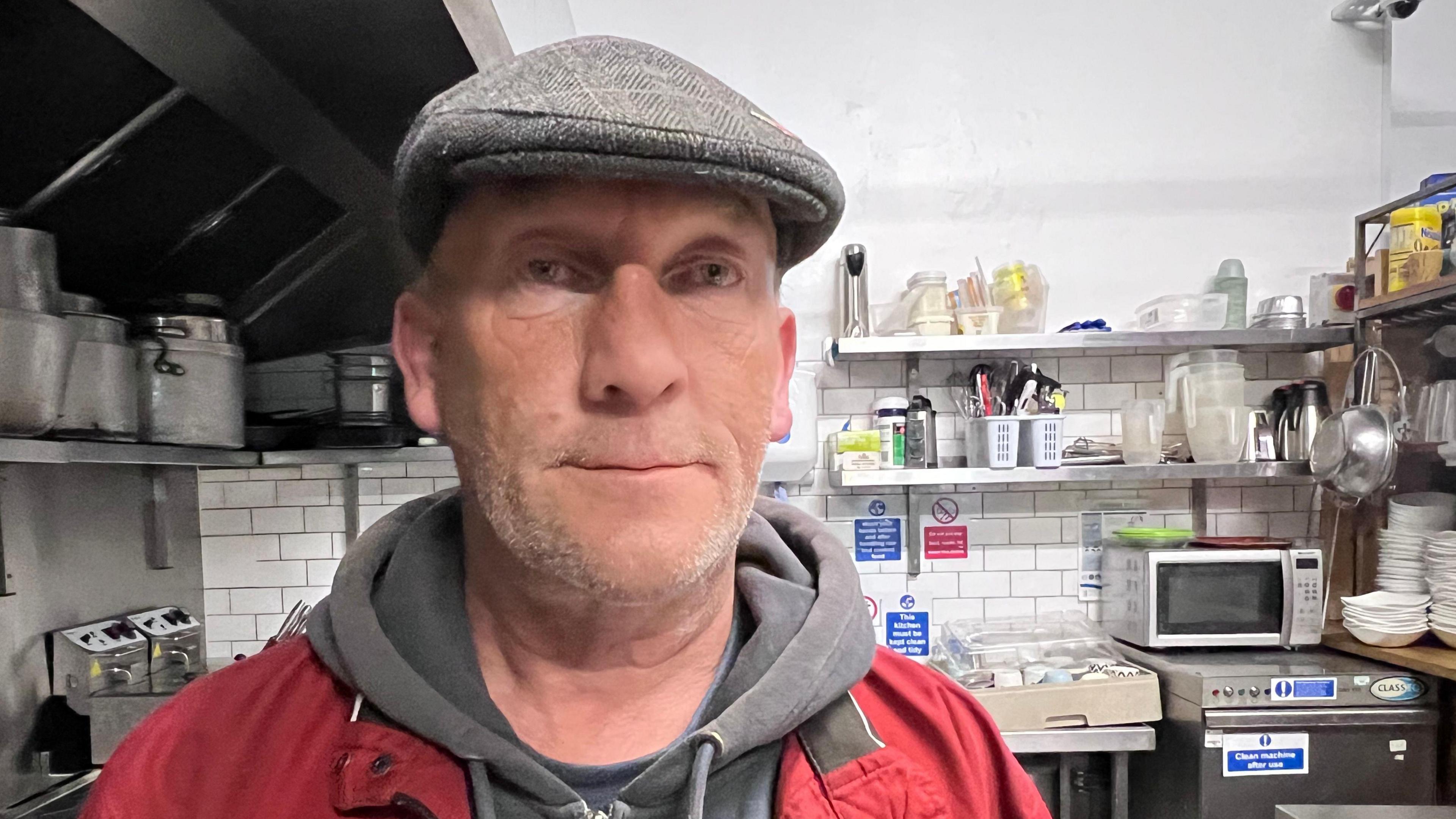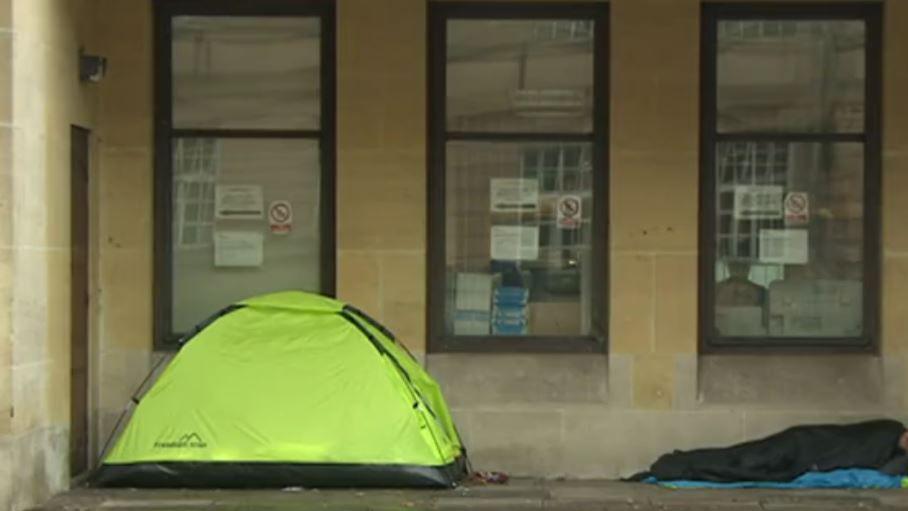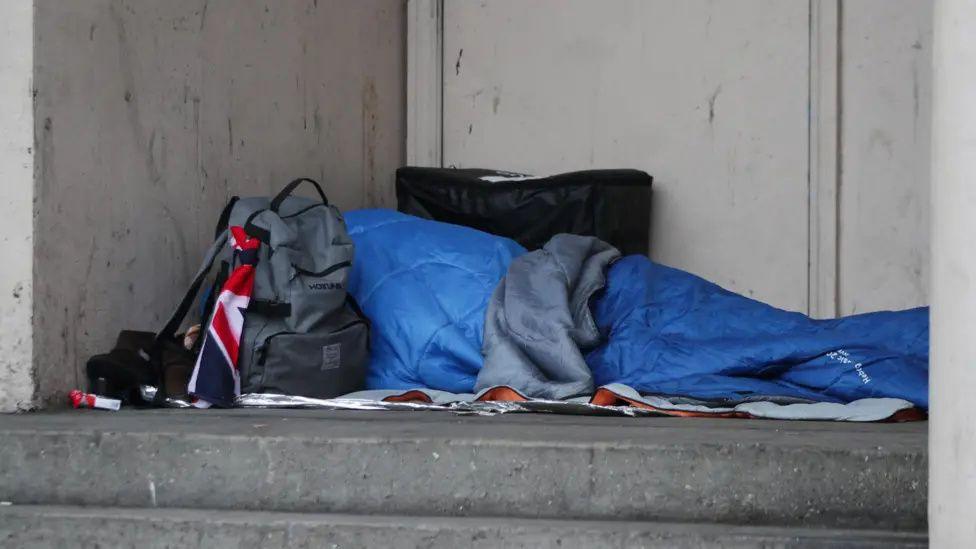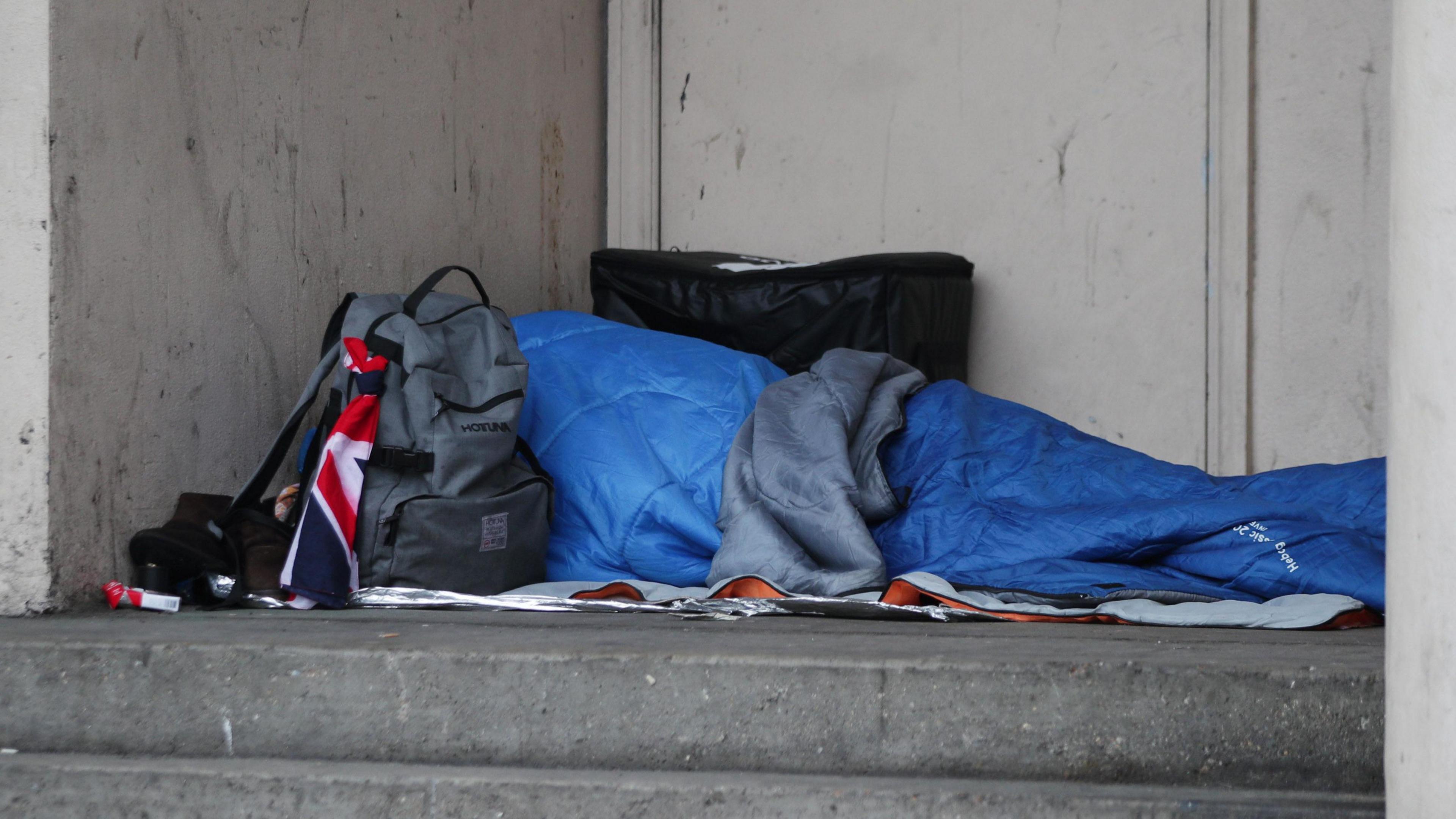Call for night shelters to return for the homeless

Charity manager Andrew Talbot would like to see the council's rough sleeping funding be used for reinstating night shelters
- Published
The manager of a charity working with rough sleepers has said Bournemouth needs a night shelter again.
Andrew Talbot, from We Are Humans in Bournemouth, said Bournemouth, Christchurch and Poole (BCP) Council's severe weather response was not a long-term solution.
This week, the council activated its Severe Weather Emergency Protocol (SWEP), where all rough sleepers are offered a bed because of the freezing overnight temperatures.
BCP council said it is an emergency response to protect against loss of life and is available to those who would not normally be eligible for housing.

The cold snap across the UK prompted councils to start their severe weather emergency response (SWEP) for temporary accommodation, hot food and urgent additional support
Mr Talbot said he would like night shelters reinstated so people could get off the streets "on a more permanent basis".
Church halls, hostels and hotels are often used for SWEP, which has been put in place until Friday in Dorset. These places are not all available for use longer term.
That is one reason why Mr Talbot believes a night shelter is needed in the town, which has more than 50 rough sleepers at the moment.
Night shelters allow people to just turn up each day and ask for a bed.
At the moment, BCP council asks people sleeping rough to come to them for help with housing first, to engage them in support services including help with addictions.
Under SWEP, it says its outreach team and the homeless charity St Mungo's offers temporary accommodation, hot food and urgent additional support to everyone sleeping outside.
Andrew Talbot, who has been homeless himself, said he would like to see the emergency funding allocated for supporting rough sleepers spent on night shelters.
Mr Talbot said "if SWEP saves one life, it's definitely a good thing" but added that it "comes with its own complications as well".
"They will take them in out of the cold while it's nought degrees or below," he said.
"The minute it goes up one degree, SWEP will end, and the people would be put back out on to the streets in cold, horrible conditions."
Mr Talbot said the approach could be detrimental to homeless people's health.
"You'll end up most of the time being ill because you've acclimatised to warmth and you're back in the freezing cold again," he said.
"It comes with illnesses, flu, colds. And then there is the mental health side of it that you've been somewhere nice and warm for maybe four to five days.
"And then you're back into the madness, into the spiral of no hope."
Providing solutions
But BCP did not agree with Mr Talbot's view that SWEP does not have any long-term benefit.
"Last year, 33 people benefited from this approach, reinforcing SWEP’s potential to permanently help people off the streets," said Councillor Kieron Wilson, portfolio holder for housing.
“The Bournemouth, Christchurch and Poole Street Outreach Service team will be undertaking additional shifts during SWEP to encourage everyone rough sleeping, including those who are reluctant, to take up the offer of temporary accommodation."
He added that after SWEP's deactivation, the council and its partners would "continue to support individuals into a range of long-term housing solutions".
Get in touch
Do you have a story BBC Dorset should cover?
You can follow BBC Dorset on Facebook, external, X (Twitter), external, or Instagram, external.
- Published7 November 2024

- Published27 November 2023
